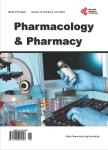<i>In Vitro</i>Anticancer Activity of Plant-Derived Cannabidiol on Prostate Cancer Cell Lines
<i>In Vitro</i>Anticancer Activity of Plant-Derived Cannabidiol on Prostate Cancer Cell Lines作者机构:Department of Pathology & Laboratory Medicine University of British Columbia Vancouver Canada The Vancouver Prostate Centre 2660 Oak St. Jack Bell Research Centre Vancouver Canada The Vancouver Prostate Centre 2660 Oak St. Jack Bell Research Centre Vancouver Canada Department of Urologic Sciences Faculty of Medicine University of British Columbia Vancouver Canada
出 版 物:《Pharmacology & Pharmacy》 (药理与制药(英文))
年 卷 期:2014年第5卷第8期
页 面:806-820页
学科分类:1002[医学-临床医学] 100214[医学-肿瘤学] 10[医学]
主 题:Prostate Cancer Androgen Receptor Cannabidiol (CBD) Anti-Inflammatory CB1 CB2 Prostate Cancer Cell Lines
摘 要:Cannabinoids, the active components of Cannabis sativa Linnaeus, have received renewed interest in recent years due to their diverse pharmacologic activities such as cell growth inhibition, anti-inflammatory effects and tumor regression, but their use in chemotherapy is limited by their psychotropic activity. To date, cannabinoids have been successfully used in the treatment of nausea and vomiting, two common side effects that accompany chemotherapy in cancer patients. Most non-THC plant cannabinoids e.g. cannabidiol and cannabigerol, seem to be devoid of psychotropic properties. However, the precise pathways through which these molecules produce an antitumor effect have not yet been fully characterized. We therefore investigated the antitumor and anti-inflammatory activities of cannabidiol (CBD) in human prostate cancer cell lines LNCaP, DU145, PC3, and assessed whether there is any advantage in using cannabis extracts enriched in cannabidiol and low in THC. Results obtained in a panel of prostate cancer cell lines clearly indicate that cannabidiol is a potent inhibitor of cancer cell growth, with significantly lower potency in non-cancer cells. The mRNA expression level of cannabinoid receptors CB1 and CB2, vascular endothelial growth factor (VEGF), PSA (prostate specific antigen) are significantly higher in human prostate cell lines. Treatment with Cannabis extract containing high CBD down regulates CB1, CB2, VEGF, PSA, pro-inflammatory cytokines/chemokine IL-6/IL-8. Our overall findings support the concept that cannabidiol, which lacks psychotropic activity, may possess anti-inflammatory property and down regulates both cannabinoid receptors, PSA, VEGF, IL-6 and IL-8. High CBD cannabis extracts are cytotoxic to androgen responsive LNCaP cells and may effectively inhibit spheroid formation in cancer stem cells. This activity may contribute to its anticancer and chemosensitizing effect against prostate cancer. Cannabidiol and other non-habit forming cannabinoids c



